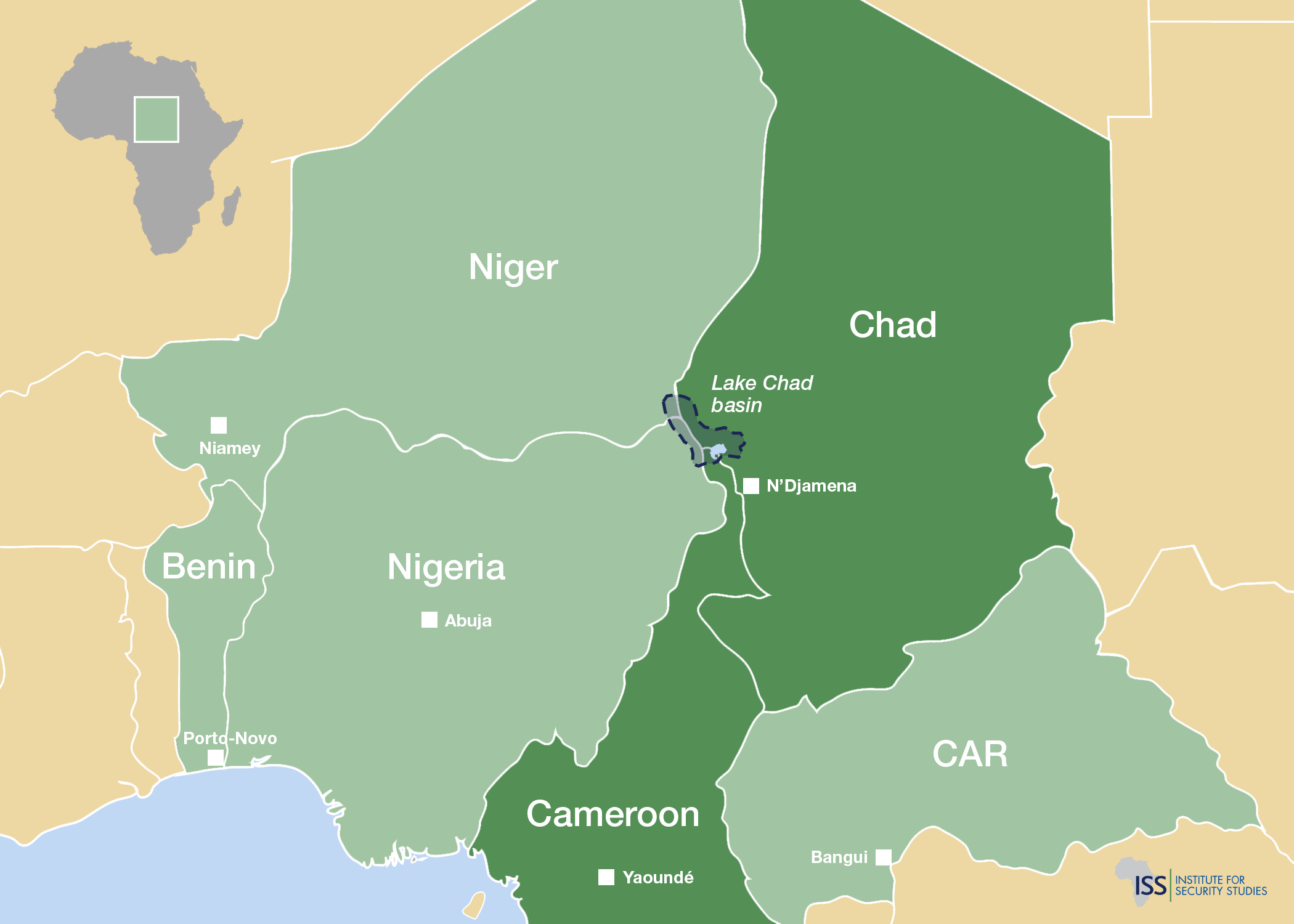Soft power: missing element in the Chad-Cameroon border defence pact?
Strategies based on purely military operations can often alienate the very populations they aim to protect.
Published on 25 November 2025 in
ISS Today
By
The defence agreement signed by Chad and Cameroon on 23 September is a welcome step in securing their more than 1 000 km border, but needs the buy-in of affected communities.
Insecurity in the border area takes the form of Boko Haram violence, inter-communal rivalries and various types of organised crime such as kidnapping for ransom, cattle rustling, arms, drug and human trafficking, and poaching.
The instability disrupts fishing, farming, trade and supply chains, resulting in the closure of markets such as the livestock market in Banki, northeastern Nigeria. Youth unemployment rates in Cameroon’s Far North are as high as 75%, a situation that incentivises young people to join violent extremist groups. On the Chad side, Islamic State West Africa Province (ISWAP) is actively involved in terror activities and other cross-border crimes.
|
Chad-Cameroon border

|
Many border communities in both countries suffer from state neglect and an absence of critical services like healthcare, education and security. The situation is exacerbated by governments being forced to channel resources – which could otherwise go into development – towards military efforts to combat armed groups.
Resource scarcity underlies inter-communal clashes, and limited economic opportunities drive communities into arms trafficking, with Cameroon serving as the main route for gun running between Chad and the Central African Republic. Cattle rustling is another growing threat, facilitated by an intricate web of actors exploiting porous borders and ungoverned territories.
Cameroon and Chad have a history of joint military cooperation, such as the Multinational Joint Task Force (MNJTF) established by the Lake Chad Basin Commission in 1994, which includes Nigeria, Niger and Benin. The task force is mandated to combat Boko Haram in the region.
For operations of this nature to succeed, affected communities must be involved from the planning stages
Building on previous military collaborations, the ambitious 23 September agreement outlines the need for joint border operations and training, increased cooperation and improved information sharing. The partnership aims to synchronise counter-terrorism efforts, control transhumance to reduce conflict among armed pastoral migrants, and suppress cross-border crime.
The agreement has several strengths, including experience gained from the MNJTF collaboration and providing a platform for pooling resources. However, it does not address the role of communities in helping to stabilise the Chad-Cameroon border area. For operations of this nature to succeed, affected communities must be involved early on – from the planning stages. This soft-power approach is a vital complement to the hard-power posture of the security forces.
Drawing communities in builds their trust, increasing the likelihood of the joint military pact succeeding. This approach also incurs lower operational costs and casualties, as improved intelligence sharing enables more precise kinetic operations, which reduce collateral damage. Intelligence-driven precision strikes also decrease spending on firepower, thereby easing budgetary pressures.
Soft power is important in countering the radical narratives spread by terror groups like Boko Haram
Strategies relying too heavily on hard military actions can alienate the very populations they aim to secure. In operational areas, misunderstandings often occur between security forces and communities due to collateral damage during operations and excessive use of force when suspects are interrogated. As a result, affected communities often see military operations as counterproductive and a threat to their wellbeing.
Soft power refers to the ability to exert influence through persuasion and attraction, as opposed to the use of force, intimidation or financial incentives. The doctrine typically establishes a close-knit civilian-military coordination structure that enables grievances from all sides to be aired, aiding in conflict resolution. This structure also helps identify and deliver high-impact development projects in affected communities.
Soft power is equally important in countering the radical narratives spread by terror groups like Boko Haram. Reliable, trusted communication channels between security forces and communities allow anti-government and religious extremist views to be discussed and countered. This can help prevent individuals from being recruited into extremist groups.
The complexity of security challenges in the border area makes mechanisms for community engagement vital
Security forces can also use established relationships with communities to implement programmes that boost community resilience against negative messaging, and raise public awareness about safety measures they can take.
The complexity of security challenges in the Chad-Cameroon border areas makes it even more important that the joint military agreement includes mechanisms for community consultation and feedback. This will help authorities tailor responses to the dominant security concerns of particular areas, which are likely to differ from one community to the next in this vast border region.
Building the understanding and capacity of local religious, women and youth leaders on the goals of the defence agreement is also necessary. Their involvement can facilitate information exchanges, conflict resolution and the delivery of development projects and military assistance during crisis responses, disaster management and medical evacuations.
Exclusive rights to re-publish ISS Today articles have been given to Daily Maverick in South Africa and Premium Times in Nigeria. For media based outside South Africa and Nigeria that want to re-publish articles, or for queries about our re-publishing policy, email us.

